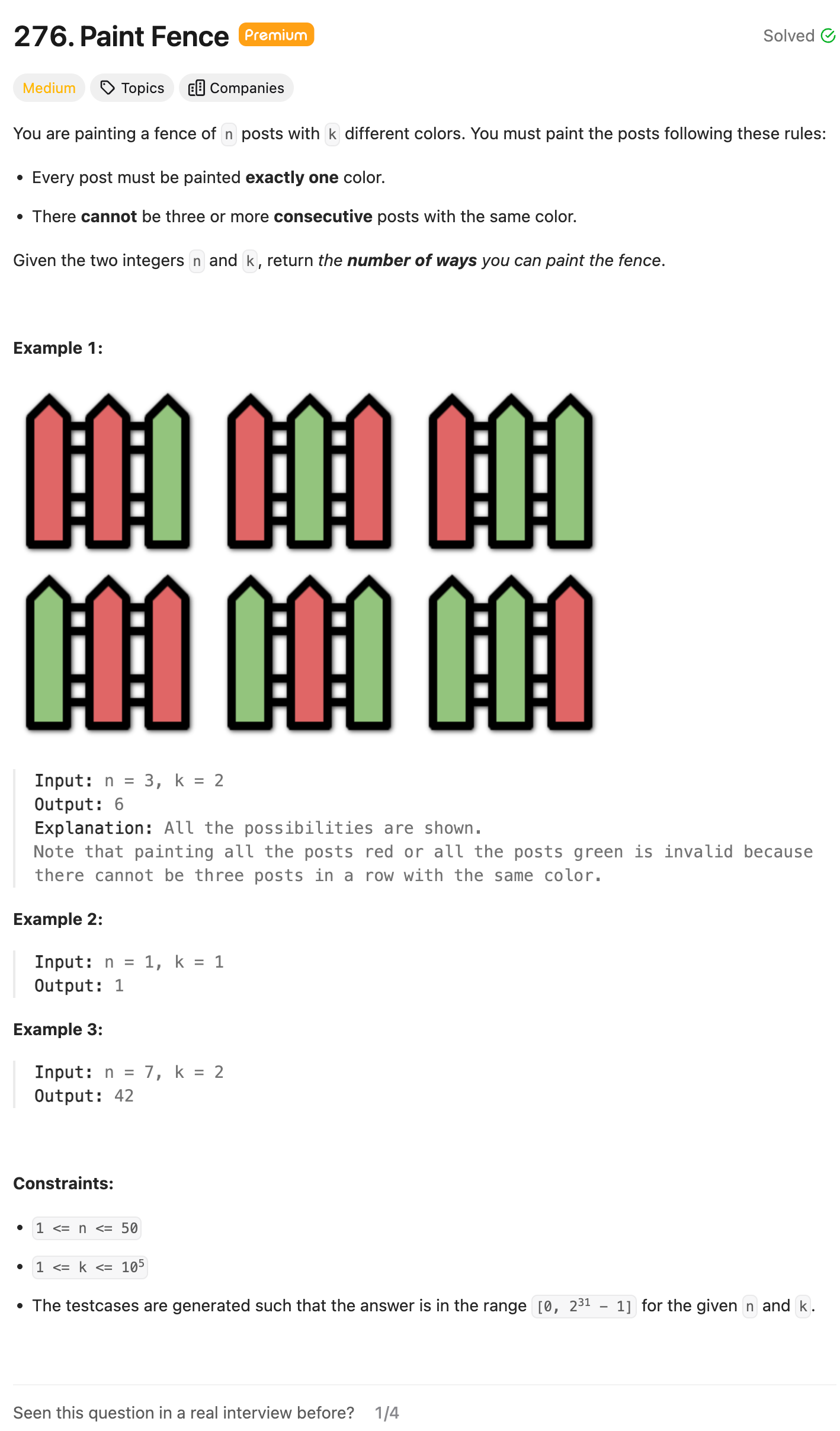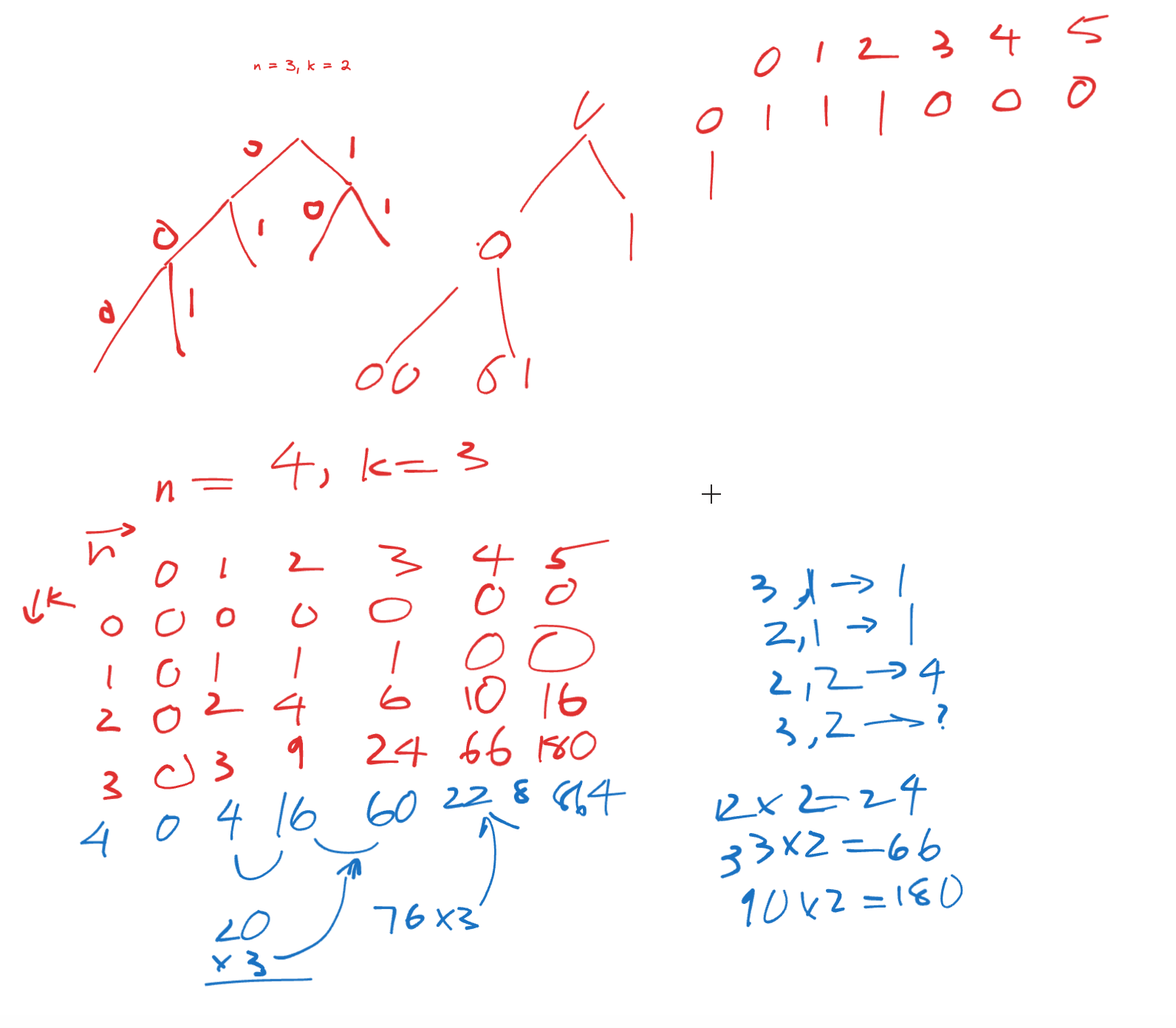Problem of The Day: Paint Fence
Problem Statement
Brute Force - Memoization Approach - TLE
class Solution:
def numWays(self, n: int, k: int) -> int:
memo = defaultdict(tuple)
def dfs(color, post, curr):
if len(curr) >= 3 and curr[-1] == curr[-2] and curr[-2] == curr[-3]:
return 0
if post == n:
return 1
if (color, post, tuple(curr)) in memo:
return memo[(color, post, tuple(curr))]
res = 0
for c in range(k):
res += dfs(c, post + 1, curr + [c])
memo[(color, post, tuple(curr))] = res
return res
return dfs(0, 0, [])
Intuition
To overcome the TLE, my thought was that we can use dynamic programming to build a solution by considering the choices made at each step.
Approach
I will use dynamic programming to build a solution. I will create an array dp where dp[i] represents the number of ways to paint the first i posts with the given constraints. I will initialize dp[1] to k since there are k ways to paint the first post.
For each subsequent post (starting from the second post), the number of ways to paint it depends on the choices made for the previous two posts. If the current post has the same color as the previous one, then the number of ways is (k-1) times the number of ways to paint the previous post. If the current post has a different color than the previous one, then the number of ways is (k-1) times the sum of the number of ways to paint the previous two posts.
I will iterate through the posts, updating the dp array based on the described logic. The final result will be dp[n].
Complexity
-
Time complexity: O(n), where n is the number of posts. We iterate through the posts once.
-
Space complexity: O(n), as we use an array of size
n+1for dynamic programming.
Code
class Solution:
def numWays(self, n: int, k: int) -> int:
if k == 0 or n == 0:
return 0
dp = [0] * (n + 1)
dp[1] = k
for i in range(2, n + 1):
if i == 2:
dp[i] = k ** 2
else:
dp[i] = (dp[i-1] + dp[i-2]) * (k - 1)
return dp[-1]
Editorial Solution
Approach 1: Top-Down Dynamic Programming (Recursion + Memoization)
class Solution:
def numWays(self, n: int, k: int) -> int:
def total_ways(i):
if i == 1:
return k
if i == 2:
return k * k
# Check if we have already calculated totalWays(i)
if i in memo:
return memo[i]
# Use the recurrence relation to calculate total_ways(i)
memo[i] = (k - 1) * (total_ways(i - 1) + total_ways(i - 2))
return memo[i]
memo = {}
return total_ways(n)
Approach 2: Bottom-Up Dynamic Programming (Tabulation)
class Solution:
def numWays(self, n: int, k: int) -> int:
# Base cases for the problem to avoid index out of bound issues
if n == 1:
return k
if n == 2:
return k * k
total_ways = [0] * (n + 1)
total_ways[1] = k
total_ways[2] = k * k
for i in range(3, n + 1):
total_ways[i] = (k - 1) * (total_ways[i - 1] + total_ways[i - 2])
return total_ways[n]

